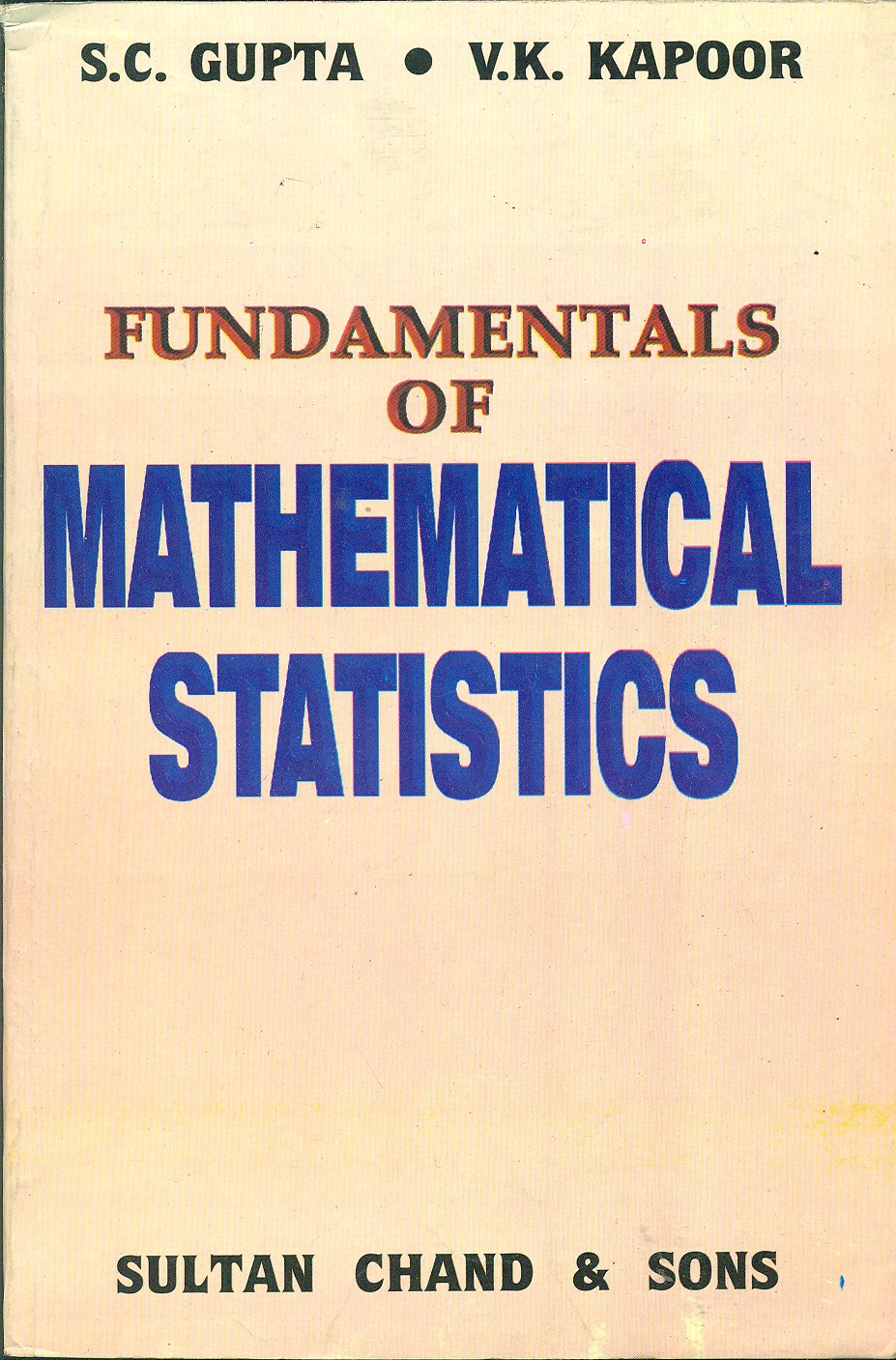This book is designed for B.E./B.Tech. Students of Automobile Engineering of all Indian and Foreign Universities.
- Fundamental Of Mathematical Statistics Book Pdf Download
- Fundamentals Of Statistics By S K Gupta Pdf Free
- Fundamental Of Applied Statistics By Sc Gupta Pdf Download
The subject matter is presented in the most concise, to-the-point and lucid manner. It contains well-graded examples, most of which are taken from the recent examinations of Indian and Foreign Universities. To make this book more useful for the students, Objective Type Questions with Answers are added at the end of each chapter, which can also be utilized for appearing in interviews and competitive examination.

This book can be really useful as a reference for the professionals working in automobile industry. Provides detailed information about working of different systems of automobile along with new technologies.
Each chapter explains the details of each system along with its components. A large number of illustrations and tables are provided, which will help in understanding the text. The book will also be a valuable source of information and reference for competitive exams, interviews and working professionals. At the end of each chapter, Exercises, Questions and Objective Type Questions have been given to make this treatise a complete comprehensive book on the subject. Introduction. Performance of Automobiles.
Suspension System. Tyre and Wheel. Steering System. Braking System. Electrical Fundamentals.
Battery. Charging System. Starting System. Lighting System and Accessories. Air-Conditioning, Heating and Ventilation Systems.

I.C. Engines (Fundamentals and Components). Combustion and Combustion Chambers. Working and Testing of I.C. Engines.

Cooling System. Lubrication System. Fuel Supply System in Petrol Engines. Fuel Systems in Diesel Engines. Air Intake and Exhaust System.
Air Pollution and its Control (Emission Control). Domino master gold serial number. Ignition System. Clutches. Manual Transmission. Automatic Transmission. Drive Line System. Common Tools and Measuring Instruments.
Maintenance System.
Fundamental Of Mathematical Statistics Book Pdf Download
Agriculture is one of the few industries that has been creating resources conti- ously from nature. Sustainability of this industry is a crucial issue at now-a-days.
Fundamentals Of Statistics By S K Gupta Pdf Free
Agricultural technologies are important to feed the growing world population. Agricultural engineering has been applying scienti?c principles for the optimal use of natural resources in agricultural production for the bene?t of humankind. The role of agricultural engineering is increasing in the coming days at the forthcoming challenges of producing more food with less water coupled with climate uncertainty. I am happy to know that a book entitled “Fundamentals of Irrigation and On-farm Water Management”, written by Engr. Ali, is going to be p- lished by Springer. The book is designed to cover the major fields of agricultural and environmental engineering such as weather, plant, soil, water, and basics of on-farm water management. The book will be quite useful for the students of agricultural engineering.
Students of other related branches of engineering s- ences, and engineers working in the field and at research institutes will also be beni?ted. The book may serve as a text book for the students and as a practical hand-book for the practitioners and researchers in the?eld of irrigation and on-farm water management. Utilization of the recent literature in the area and citation of relevant journals / reports have added a special value to this book.
Considering the topics covered, engineers, scientists, practitioners, and educators will?nd this book as a valuable resource. Table of Contents. Introduction: Perspectives and General Concept of Irrigation. Fundamentals of Irrigation Development and Planning. Weather: A Driving Force in Determining Irrigation Demand.
Fundamental Of Applied Statistics By Sc Gupta Pdf Download
Soil: A Media for Plant Growth. Plant: A Machinery of Water Absorption. Water: An Element of Irrigation. Field Water Balance.
Soil–Water–Plant–Atmosphere Relationship. Crop Water Requirement and Irrigation Scheduling. Measurement of Irrigation Water. Water Conservation and Harvesting. Economics in Irrigation Management and Project Evaluation.